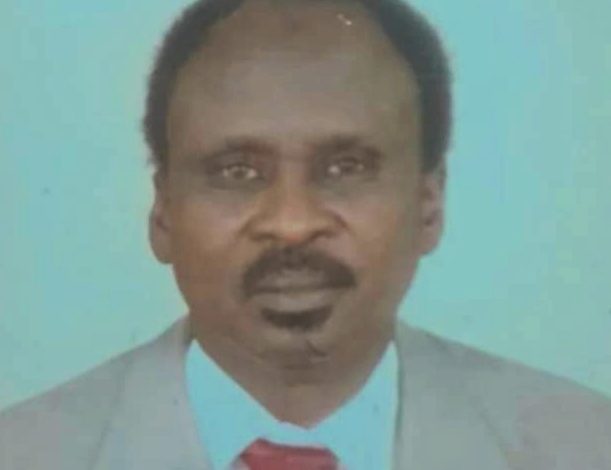Hamdok… The Fallen Star!

Awad Abkar Ismail
He was that star that shone brilliantly in the sky of the December 19, 2019 revolutionaries, capturing the eyes and hearts of those who admired and revered him, some even wearing his image proudly on their chests. They admired his simple logic and concise style, elevating him to the heights of the sky, eagerly awaiting his every word. His expressions—like “pragmatism” and “we will succeed… we will prevail”—became catchphrases that the revolution’s youth would echo in cities and villages alike, without questioning the depth behind them. They admired his supposed fame in international economic circles, unaware that behind the charm lay hidden flaws, as we say in Sudan, “not all is as it seems.”
Indeed, many in Sudan rallied around him as they had before around the historic leader Dr. John Garang following the signing of the Comprehensive Peace Agreement (CPA) with the National Congress government in 2005. They saw in Hamdok a savior of their crumbling economy, placing all their hopes on his shoulders to bring about tangible change: reforming the economy, fighting corruption, and combating unemployment… but alas!
This was how the Sudanese public viewed Abdalla Hamdok upon his return to Sudan and in the early days thereafter.
The Forces of Freedom and Change (FFC) embraced him upon his arrival, guiding him to power, where he would lead the transitional government under their direction as Prime Minister. However, one criticism leveled at him during his tenure was his lack of independence, with his decisions controlled by the FFC’s seasoned leaders. They had him bound in their chains, steering him in whichever direction they wished to pursue their agendas—political, economic, and social—turning him gradually from a leader for all of Sudan into a tool in the hands of a select group focused solely on monopolizing power. Despite this, he retained his dignity, image, and style in the eyes of those who saw him as an icon of democracy and civilian government.
This image persisted until conflict erupted between the two partners in power, the military and the civilian components, culminating on October 25, 2021, when the military ousted his government. Hamdok returned to his position about a month later, only to step down quietly two months after that and return to his expatriate life. If only he had preserved this dignified image, holding the esteemed place the Sudanese people had granted him to become an enduring national figure!
But what a disappointment! When the war broke out on April 15, 2023, between the Sudanese army and the Rapid Support Forces (RSF) rebels, Hamdok turned his back on his admirers in the Sudanese political scene. His flaws came to light as he aligned himself with the FFC, which adopted a “no to war” stance while covertly supporting the rebels. During this time, the FFC, later renamed the Coordinating Body for Civil and Democratic Forces (Taqaddum), faced constant accusations of backing the RSF rebels and acting as their political wing. Their stance and rhetoric exposed them to the Sudanese public’s anger, especially as they ignored the atrocities committed by the militia against the Sudanese people—atrocities that shocked the global conscience. Despite worldwide condemnation, Taqaddum refrained from denouncing these acts, even signing a memorandum of understanding with the RSF rebels in Addis Ababa in January 2024 to elevate their political standing and equate them with the Sudanese armed forces.
In addition, a stain of shame that will forever follow Abdalla Hamdok is his call for international intervention in Sudan’s affairs. He urged the international community to ban Sudanese military flights over the country and to establish safe, demilitarized zones. This plea was made during his recent visit to the UK at the end of October as he led a delegation from the Civil and Democratic Forces Coordination (Taqaddum). Is there any greater betrayal of one’s country than inviting foreign intervention to violate the sovereignty of one’s homeland?
Thus, his hopes are dashed, and his star has fallen from the sky of Sudanese politics forever.



